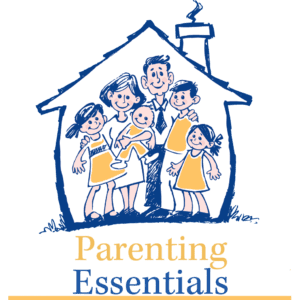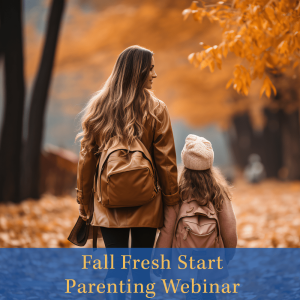Children & Teens Want to Know More From Parents: Teaching Discernment
It sometimes seems like teens don’t want to listen to adults tell them what to do or not to do, but in reality, teens and children are always hoping that adults will teach them discernment. When a person doesn’t know who to follow or what to believe morally, then that person ends up feeling lost and confused. Parents have a sacred duty to script the hearts and minds of their children morally so that children are confident and not easily corrupted as they journey through life.
If Discernment Isn’t Taught
I recently had a conversation with a young adult about his upbringing. He was lamenting about how his parents were too permissive. He said that his mother and father did whatever they want to do and didn’t do anything to unify his family or to really take care of him. He said, “They let me do whatever I wanted to do, and I did some pretty bad stuff. I wish I would have been raised with morals like you raised your children with so that I wouldn’t have made so many life mistakes and I wouldn’t have to repair so many things in my life. I wish I would have had a real family that cares like a family should.”
This young adult was wishing that his parents had taught him discernment. He lamented that he hadn’t been told what was right, wrong, good, bad, true, or false. He was just left to follow his cravings and sensations, and the parents did the same.
My six-month-old granddaughter, Clara, puts everything into her mouth. She has no discernment, only sensations such as pleasure, pain, frustration, and excitement. If she puts something in her mouth that has a new texture or flavor, she is interested and excited. But, what if that object or substance were dangerous? Well, Clara has no understanding of danger.
The other day on a walk with Clara, a large dog came running up to her stroller, barking. I was a little nervous for my grand baby and was prepared to protect her if necessary. But, Clara wasn’t nervous. She was interested in the new creature. Luckily the dog was friendly and didn’t hurt Clara in any way because Clara had no discernment about the possible dangers of being that close to such a large animal’s mouth. Clara will learn discernment bit by bit as her mother and father gradually teach her according to her developmental abilities to learn.
Vital Lessons Children Want Parents To Teach
Everyone is clamoring to teach children morality. Much of the moral training that is done socially via school or the internet is missing the mark because it is sensation and feelings based instead of truth based. With this model people are encouraged to embrace victimhood and to think negatively of classmates at teachers. Division abounds. Many people don’t understand morality. Morality is “the quality of an action which renders it good; the conformity of an act to the divine law…” [Webster’s 1828 dictionary]
The word good in Old English comes from the root word God. To be good is to be God-like or made of God. With this understanding, morality means determining if something is God-like or not. God’s divine law is what determines morality and goodness. So, if something or someone unifies with what is God-like/principled, then that unity is good.
It’s never too early to start teaching discernment to children. However, many lessons in discernment must be taught repeatedly because children develop slowly and learn through repetition. The following 12 lessons will help teach children discernment:
- There are differences between good and bad, evil and righteous choices, right and wrong, and true and false. When you read your child a book or watch something on a screen, always bring the conversation back to these vital moral opposites. Help the children learn to point out the differences in situations they are in or witness.
- Teach the child that they get to make choices for all their thoughts, actions, and emotions. Feelings can’t always be chosen, but what happens after a feeling can be chosen . It is empowering to recognize that you have a choice and can discern that choice. Of course, part of teaching about choices is also teaching about consequences; both natural and artificial.
- Set the example of good discernment by practicing discernment yourself. Your children/teens will follow your example of discernment as their brains slowly develop. If you do it or watch it, you have given them the green light to the same viewing or behavior.
- Don’t make excuses for bad choices and don’t let those bad choices hold you back from making good choices next time. If you or your child makes a poor choice, address it and fix it. Plan for a better choice in the future and talk openly about what happened.
- Every person can learn to discern between truth and error, but people who are focused on living principles and following God have an easier time. Principles are perpetual and eternal. They don’t change. They are truths that are part of moral law. So, as a parent teaches their children about divine moral laws and about God’s plan for the world, then the children are better able to see what ideas don’t fit the law.
- Discerning involves taking action. When a person learns moral law and discernment, then they are ready to develop the habit of choosing right, good, and true. As parents discern and take action, children will see the benefit of discerning, too. They will see that they’ll have better outcomes if they learn to discern.
- Boundary lines for behavior and communication increase discernment. It’s important that children know how to identify lines that they shouldn’t cross. Part of discernment is accepting “no” answers and keeping yourself from crossing dangerous boundary lines. As parents give their children boundaries, then the children learn to control themselves in order to adhere to a healthy “no” answer/boundary line.
- Anything that feels empty, dark, or confusing is probably not something to follow or believe. Most bad ideas require repetitious convincing and erroneous laws. The ideas don’t lead to freedom, they aren’t principles, and usually feel empty. Wise parents teach children to identify emptiness and darkness and to discuss those findings regularly with them. Teach children what truth and goodness feel like, too. That is a spiritual lesson that parents are best suited to teach. When the dark and light are both understood, then discernment is possible.
- Have regular discussions to promote ongoing healthy, open conversation and discernment.
- Have a vision for the family relationships that leads to balance and family unity. Vision provides balance and direction for parents and children and is vital for learning discernment. What good is any teaching without an end goal? Looking ahead gives the whole family purpose and peace.
- “There is no need to sacrifice truth on the alters of agreeableness…” (Jorg Klebingat, April 2022) Being agreeable or pleasing to others is getting in the way of discernment. Young and old alike worry about standing for their values and morals because others might not agree with them. When parents publicly, calmly stand for values and morals, then children see that it’s possible to love other people while still honoring morals and truths that they know are important. Parents should teach kindness and love but shouldn’t push children to please everyone or not appear different. People who live by morals, as opposed to social norms, are often seen as peculiar nowadays. Prepare for that.
- Correct yourself and accept correction. It’s impossible to desire discernment unless correction is a healthy thing. Repentance/correction is healthy, not harmful. When we lovingly correct our children, we give them the opportunity to embrace correction/repentance as a natural part of life. Correcting ourselves in front of our children also teaches this lesson. When correction is healthy and moral absolutes are recognized, then children/teens will more naturally decide to self-correct when they discern a need for a change in their behavior or practices. The ability to self-correct without emotionally degrading oneself is empowering and liberating.
Occasionally when we tell our teen that they can’t go to a party or tell our child that they need to speak with calmness and respect instead of anger and contempt, they may complain, roll eyes, or act as if they don’t appreciate the interaction. But, they do. Just like the young adult mentioned previously, they will ultimately recognize that boundaries, morals, and lessons in discernment bring them freedom from bad choices and increased confidence in their own ability to make decisions. Don’t let the attitude problems or whining deter you from teaching your child the most vital adult skill they could acquire; discernment.
Join Nicholeen’s Teaching Self-Government training coming up May 5-7.
Index
- Addictions, Adult Children, Adults, Age, Analyzing, Assertive Communication, Attitude, Behaviors, Calm, Changing Hearts, Character Building, Common Vision Creation, Connecting (Looking in the eyes), Control, Culture, Encouragement, Expectations, Family Culture, Family Unity, Following Instructions, Four Basic Skills, Mutual Respect, Power of Calm, Relationships, Respect, Roles, Skills, Social, Social Skills, Structure, Teens (Youth), Toddlers & Younger Children, Tone, Tweens, Unity, Vision





